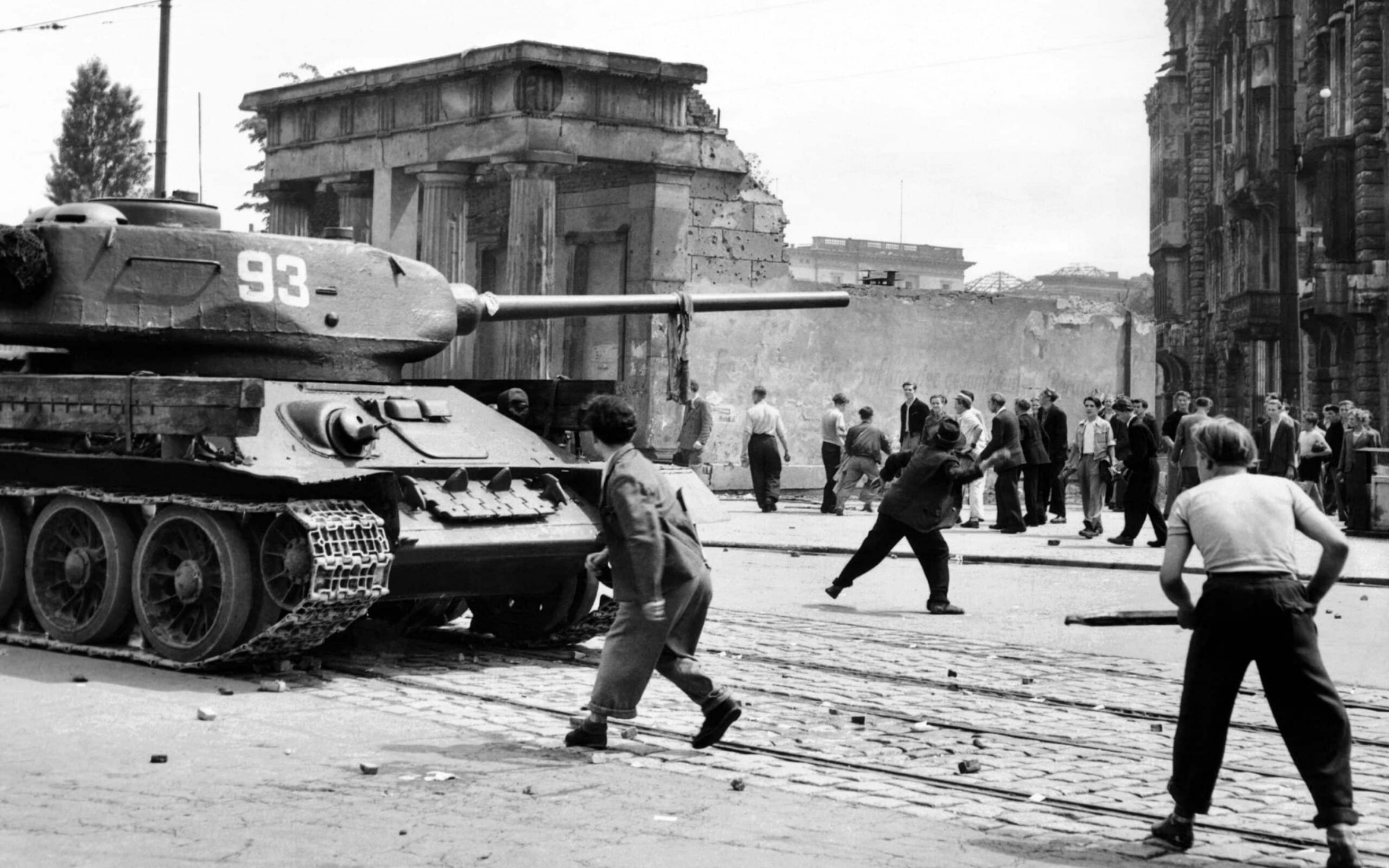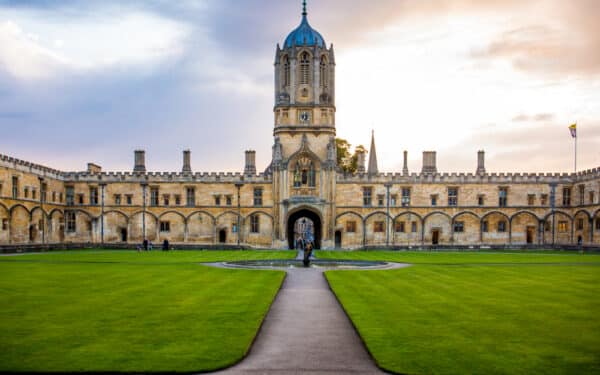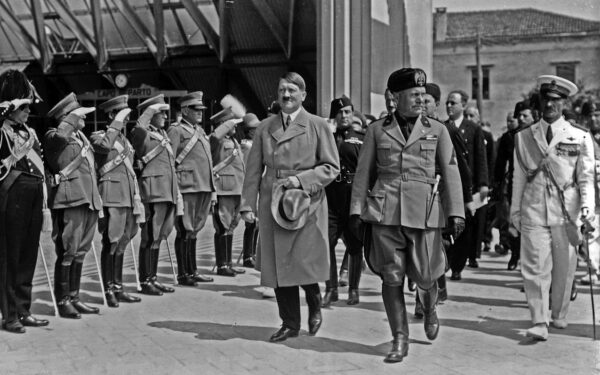The Czech writer Milan Kundera who died last month was shaped by a European cultural sensibility in a Cold War setting. A slim volume of essays written by him before the Berlin Wall came down has just been published. A Kidnapped West: The Tragedy of Central Europe is a poignant and eloquent reminder of a world of yesterday, of a divided Europe. It makes for unsettling reading as Russia, the instrument of past repression in Kundera’s own homeland, seeks now a renewed imperium in its borderlands.
What Kundera thought of Russia is captured well when – drawing on the reflections of the renowned nineteenth-century Czech historian Frantisek Palacky – he writes:
“Central Europe longed to be a condensed version of Europe made up of nations conceived according to one rule: the greatest variety within the smallest space. How could Central Europe not be horrified facing a Russia founded on the opposite principle: the smallest variety within the greatest space?”
The war in Ukraine is rekindling old divisions all too familiar to Kundera’s generation and which many had thought definitively left behind at the start of the 1990s. What is different now is that, whereas the Soviet Union sought power through communist ideology, Putin’s Russia – at home and abroad – seeks power for its own sake and to sustain an assertive nationalism, an expansionist uniformity. Truly a case of the empire strikes back.
In Cold Peace, Michael Doyle suggests there is an alternative vista and that a new Cold War is not inevitable. He makes a sophisticated case but his book’s sub-title – “Avoiding a new Cold War” – suggests that without novel approaches another Cold War may be unavoidable. Of course some readers may well think that following Russia’s invasion of Ukraine we are already caught up in a new Cold War and not just with Russia but with China as well. What Doyle shows especially well is that avoidable or not a new Cold War won’t be like the old one; too much has changed.
However, Doyle begins with criticism of what he considers a lost opportunity, one whose effects are with us still. Thirty years on it is a jolt to be reminded of what Mikhail Gorbachev called a “common European home”, one that stretched east to include the former Soviet Union. Was the West too hesitant and too lacking in geopolitical ambition to grasp an opportunity to reshape European security by incorporating Russia into a newly expanded NATO or substituting a Europe-wide new alliance? Mirage or missed chance, the moment passed all too quickly; what might in 1991 have been thought possible had effectively slipped from view by 2004. Whether Doyle is right in his criticism or not his optimistic perspective was not shared at the time by Eastern Europeans who had only just escaped from Soviet Russia’s talons. Poland, Czechoslovakia, Hungary and later the Baltic states and others sought security in NATO rather than in hopes of a European “home” which incorporated a Russia they saw no reason to trust.
The real strength though of Doyle’s book is to be found more in his analysis of the changes on the international chessboard than in his proposed ways to avoid – or at least mitigate – the impact of a new Cold War. What he calls the “sources of conflict” did not of course arise only in 2022 and are as much transnational as national. It is not just that corporatist business monopolies have been servicing autocratic governments with nationalist agendas, most notably – but far from exclusively – in Russia and China; but that global challenges, not least climate change and cyber technologies, are taking form in an increasingly dysfunctional international system.
Patterns of interaction shaped at the end of the Second World War and during the Cold War are now subject to strain as US and wider Western dominance of the international system is weakening. Democratic processes in the so-called liberal democracies of North America and Europe are suffering a loss of confidence in their own mission, in part because globalisation is generating unexpected challenges from newly assertive players in South and East Asia. But one of the more resonant contentions in “Cold Peace” is that today’s autocrats should be viewed by the US and its allies not as enemies but as adversaries. This is not mere wordplay. The distinction Doyle argues has implications for domestic as well as international politics:
“… while the democracies will differ from … [the autocracies] …on human rights, promote different rules of market competition, and support alliances with like-minded states, the democracies will also need to find common ground with them on climate change and arms control.”
He is clear also that old approaches or expectations are no longer realisable whether they take the form of efforts to turn Russia and China into liberal democracies through economic engagement; to contain China’s military power; or to isolate those states unwilling to share Western values. Once dominant powers resent a diminishing ability to impose their approaches and goals on others, but that doesn’t or shouldn’t turn their adversaries into enemies.
So what is to be done? If the old ways haven’t worked and differences internationally are hardening rather than easing and global threats are ever more pressing can “bridges” be built across some of the divides? Doyle thinks they can. He focuses on four: climate change amelioration through cooperation with China; a negotiated “solution” to Russia’s invasion of Ukraine; a detente with China over Taiwan; and a kind of “cyber peace” or detent. None of these are modest objectives and there is as much hope as expectation in Doyle’s arguments and proposed ways forward. But though far from starry-eyed about the prospects, he is emphatic in his core conclusion: better a constrained and compromising “Cold Peace” than an unrestrained new “Cold War”.
Nonetheless, the odds against some of Doyle’s proposed “bridging” scenarios are stacked high. Take the case of the Russian invasion of Ukraine, the impact of which is where this review began. Doyle assumes the most likely scenario on the battlefield will be a stalemate and that a negotiated conclusion of some sort will be required thereafter. The elements in his “bridging” initiative would involve painful territorial concessions – validated by internationally supervised referendums – by Ukraine over Crimea (justified by a simple majority of Russians living there) and by Russia in the Donbas (where Russians are a distinct minority) with pledges from the EU and NATO to support such outcomes. Meanwhile a wider framework for detente between NATO and the EU and Russia would be needed. Viewing all these various elements from a vantage point far from Ukraine, Doyle queries the wisdom of granting the country NATO membership and fears Ukraine would be a “strategic liability” for the Alliance. He concludes:
“It might thus make sense for NATO to declare that it will not offer membership to Ukraine as long as Russia credibly promises not to destabilise the country and lives up to those promises in practice.”
At its recent summit in Vilnius the Alliance took a different view and seemed unwilling to base its future security and that of Ukraine on “Russian promises”, credible or otherwise. I doubt Milan Kundera would have thought otherwise, too.
A Kidnapped West: The Tragedy of Central Europe by Milan Kundera
Faber & Faber £10 pp96
Cold Peace: Avoiding the New Cold War by Michael Doyle
Liveright Publishing £23.99 pp288
Write to us with your comments to be considered for publication at letters@reaction.life




